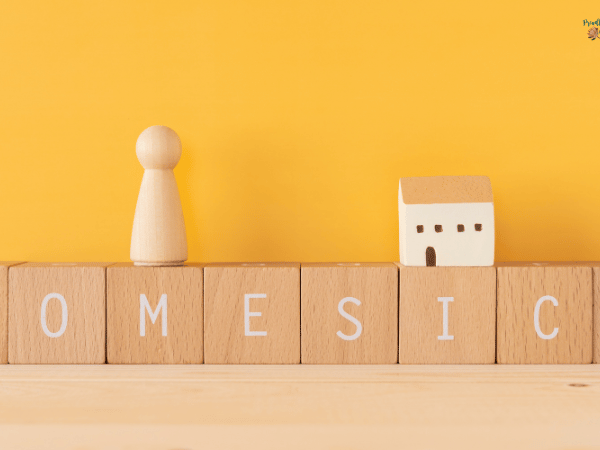When you first move to Australia, you may decide to stay in short term accommodation for a while before deciding on where you want to live. If you’re lucky enough, you may have friends or family to stay with but eventually you’ll need to find a place of your own.
Some people come over and buy a house straight away but I really recommend renting for at least 6-12 months before buying your own home. It gives you a chance to get to know the city, discover what areas you like and don’t like and settle into life without the pressure of trying to buy the right house.
Yes it’s annoying having to jump through a landlord’s hoops and not be able to do what you want to the house, but it’s better than rushing into making a purchase of hundreds of thousands of dollars and then later realising it’s not the right house for you.
So what do you need to know about renting a house in Perth?
It’s A Landlord’s Market In 2021
Currently, in 2021, it’s a landlord’s market.
Thanks to Covid-19, there is a shortage of rental properties in Australia as a lot of people have come back to Australia following the lockdown and travel restrictions and less people are moving home while the pandemic is in full swing.
It’s common for people to offer a higher weekly rent in conditions like this. Landlords have the pick of the bunch when it comes to who they want in their properties, so make your application as appealing as possible to them.
Some agents offer virtual viewings as well where there are strict restrictions in place so keep an eye out for these as they will save you travelling around to see multiple houses across a city or town.
Have A Rental Pack
When you apply to rent a property, especially as someone who is new to the country, I recommend having a rental pack ready so show your appeal as a tenant. Without a credit history in Australia, you need to prove why you would make a good tenant. Include a personal reference and a work reference. If you are currently employed, copies of recent payslips will confirm your income. If you are not yet employed while house hunting, include a bank statement showing your available funds. If you do not have a job yet, you will be required to show you have enough money to pay the term of the lease (normally 6 months).
Length Of Lease
Most leases are for 6 to 12 months. There seem to be more landlords opting for 12 month contracts these days which is good for tenants as it gives you more stability. In the years gone past, you were normally offered a 6 month lease because the landlord wanted the option to increase your rent after 6 months – so sneaky. Rolling contracts also are not common but sometimes if you ask this may be an option if your initial lease comes to an end. Many landlords would rather have someone in their house instead of kicking good tenants out just because they didn’t want to sign another 6 or 12 month lease.
Deposits & Pets
Most landlords expect a deposit (they call it a bond) of 4 weeks of rent plus you have to pay your first two weeks upfront when you sign the lease. This means whatever the advertised weekly rent is, you’ll need that x6 before you can sign a lease. As long as the property is in the exact same condition when you vacate (and I do mean exact!), you should get 100% of your deposit back. If you have pets, you’ll most likely to be asked to pay an extra bond for your pets to cover extra cleaning costs when you vacate (even if you have the cleanest, tiniest pet in the world, you’ll probably have to pay this!). This pet bond can be no more than $260 unless the weekly rent amount is over $1200 (see current regulations here).
Rent Inspections
Throughout your lease you are required to make the home available for rent inspections. This is when the landlord or agent will come round and inspect the premises to make sure you aren’t causing any damage or neglecting the garden. It normally happens every 3 months. I have heard of some agents who will mark you down if the beds aren’t made but hopefully this sort of nonsense doesn’t happen much anymore since the mining downturn. As long as the house is clean and the garden isn’t looking like a jungle you should be OK but make sure to check with the agent as to what is expected if you aren’t sure. One friend of mine got told off by the rental agent for having one single tall weed in the garden!
Who Pays For What
Landlords are responsible for shire rates (municipal rates in South Africa/council tax in the UK), so don’t let them think about passing these costs onto you.
They are also responsible for the water rates, tenants only pay for their water usage (normally around $30 every 2 months, unless you have a pool or a leak!). Otherwise tenants pay for their utilities and any phone/internet charges, as you would expect.
If there is no active phone line at the property, you will have to pay for this yourself, the landlord is not obligated to have one connected for you. If you want to get Foxtel installed (the Aussie equivalent of DSTV/Sky TV), you will need to cover the costs and get permission from the landlord as well as this requires drilling for the cables.
Tenant Rights
If you are in any doubt as to who is responsible for what or what your rights are as a tenant legally, you can call REIWA if you are renting through a real estate agent, and if you are renting privately you can call the Department of Commerce who are extremely helpful.
Giving Notice
If you decide to give notice, you need to give at least 30 days notice of intention to vacate if you are on a fixed term lease and at least 21 days notice if you are on a rolling contract (see regulations here). If it is within your contract period, you are responsible for advertising the property BUT the agent/landlord also has a duty to make sure they advertise the property as well. So you cannot be expected to find a replacement tenant on your own. They can ask you to pay for advertising costs but these must be within reason.
Vacating
When it comes to vacating, most real estate agents will insist on a professional clean of the property and the carpets need to be professionally cleaned. A professional clean of the whole house can cost anything from $35 an hour to $400 for a set fee. Carpet cleaning is normally around $120 for 3 or 4 rooms (most houses have tiled flooring throughout except bedrooms and maybe a lounge area.
Where To Rent
While all that sounds painful and may make you want to go straight into buying, I would recommend renting for a while just to suss things out. Many people can tell you what areas are ‘good’ or ‘bad’ but I soon learnt just how subjective that is. Until you go and see suburbs with your own eyes (Google Maps does not count!), you just won’t know if you are happy to live there or not.
Sometimes circumstance will dictate where you live and I highly recommend living close to your place of work. Due to the way the city has expanded and it’s failure to keep up with providing sufficient infrastructure, driving the main roads during peak hours is a complete nightmare (unless you are used to commuting for hours a day already). If you have children, you may be looking at a particular radius around schools you would like them to attend.
Something to strongly consider is to try not to rent a house in an area you can’t afford to buy as there will come a time when you do want to buy a house and if you can’t afford to buy in the area, it means another move to a new place and effectively starting over again. This can be particularly stressful if you have to consider a change in your children’s school (although you do not have to move schools just because you move out of the catchment area, but the driving can get annoying!).
What was your experience of renting a house in Perth? What else would you add that people should know before they rent a house in Perth? Let me know in the comments!






No Comments